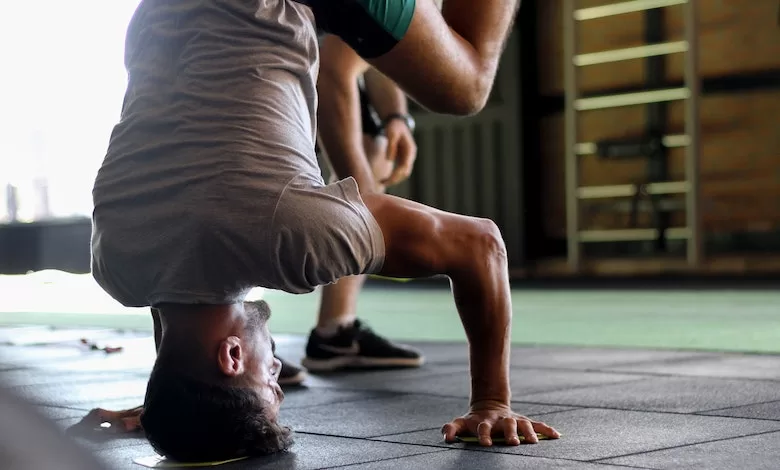
The Impact of Sleep on Athletic Performance
The Impact of Sleep on Athletic Performance
Introduction
In the world of sports, athletes continually seek ways to gain an edge over their competitors. While rigorous training, nutrition, and talent are all crucial factors, one often overlooked aspect that can significantly impact athletic performance is sleep. Sleep is not just a passive state of rest; it plays a pivotal role in an athlete’s physical and mental well-being. This article explores the profound impact of sleep on athletic performance and how optimizing sleep patterns can lead to improved results on the field, track, or court.
The Science of Sleep
Understanding Sleep Cycles
Before delving into the relationship between sleep and athletic performance, it’s essential to grasp the basics of sleep physiology. Sleep consists of several cycles, including rapid eye movement (REM) and non-REM stages. These cycles occur throughout the night, with each stage serving a unique purpose in restorative processes.
Restorative Benefits of Sleep
During sleep, the body undergoes various restorative processes that are vital for athletes. These processes include muscle repair, tissue growth, and the release of growth hormones. Moreover, the brain consolidates memories and processes information from the day, promoting better cognitive function and decision-making.
The Impact of Sleep Deprivation on Athletes
Performance Impairment
Athletes who consistently fail to get an adequate amount of sleep often experience a decline in performance. This includes reduced speed, strength, agility, and endurance. Inadequate sleep can also impair an athlete’s coordination and reaction time, increasing the risk of injuries during training and competitions.
Increased Risk of Injuries
A sleep-deprived athlete is more prone to injuries due to diminished physical and mental capabilities. Muscle strains, sprains, and fractures become more common, and the body’s ability to recover from these injuries is compromised when sleep is insufficient.
Mood and Motivation
Sleep deprivation can lead to mood swings, irritability, and decreased motivation, all of which can negatively affect an athlete’s performance. Athletes may find it harder to maintain focus and remain disciplined in their training regimens when they are not well-rested.
Optimizing Sleep for Athletic Performance
Quantity and Quality of Sleep
To harness the benefits of sleep, athletes should aim for both adequate quantity and high-quality sleep. The recommended amount of sleep varies by age, but most adults need between 7-9 hours of restorative sleep per night. Moreover, it is essential to establish a regular sleep schedule, going to bed and waking up at the same times each day to regulate the body’s internal clock.
Creating an Ideal Sleep Environment
Athletes should create an ideal sleep environment to promote quality rest. This includes keeping the bedroom dark, quiet, and cool. Investing in a comfortable mattress and pillows can also contribute to better sleep quality.
Managing Stress and Anxiety
Stress and anxiety can interfere with sleep quality, particularly for athletes facing high-pressure competitions. Engaging in relaxation techniques such as meditation, deep breathing exercises, and visualization can help athletes manage stress and improve sleep quality.
Nutrition and Hydration
Diet plays a significant role in sleep quality. Athletes should avoid heavy meals close to bedtime and limit caffeine and alcohol intake, as these can disrupt sleep patterns. Staying hydrated is essential but try to limit excessive fluid intake close to bedtime to avoid nighttime awakenings.
The Role of Naps
Napping Strategies
Naps can be a valuable tool for athletes when used strategically. A well-timed nap can help boost alertness and energy levels. Short power naps of 20-30 minutes can be especially effective, as they prevent entering deeper sleep stages and avoid grogginess upon waking.
Case Studies and Success Stories
LeBron James
LeBron James, one of the greatest basketball players of all time, is known for prioritizing sleep as part of his training regimen. He reportedly sleeps 12 hours a night during the NBA season, emphasizing the importance of rest in his exceptional performance longevity.
Usain Bolt
Usain Bolt, the world’s fastest sprinter, is another athlete who understands the value of sleep. Bolt, who has consistently dominated the 100m and 200m sprints, attributes his success partly to ensuring he gets adequate rest before competitions.
Conclusion
In the fiercely competitive world of athletics, every advantage counts, and optimizing sleep can be the key to gaining an edge. Sleep is not merely a luxury but a critical component of an athlete’s training regimen. By prioritizing quantity and quality of sleep, managing stress, and using strategic napping techniques, athletes can enhance their physical and mental capabilities, reduce the risk of injuries, and improve their overall performance. As the saying goes, “In the world of sports, victory begins in the bedroom.” So, for athletes aspiring to reach the pinnacle of their performance, getting a good night’s sleep is not just a recommendation; it’s a necessity.
Read this article




